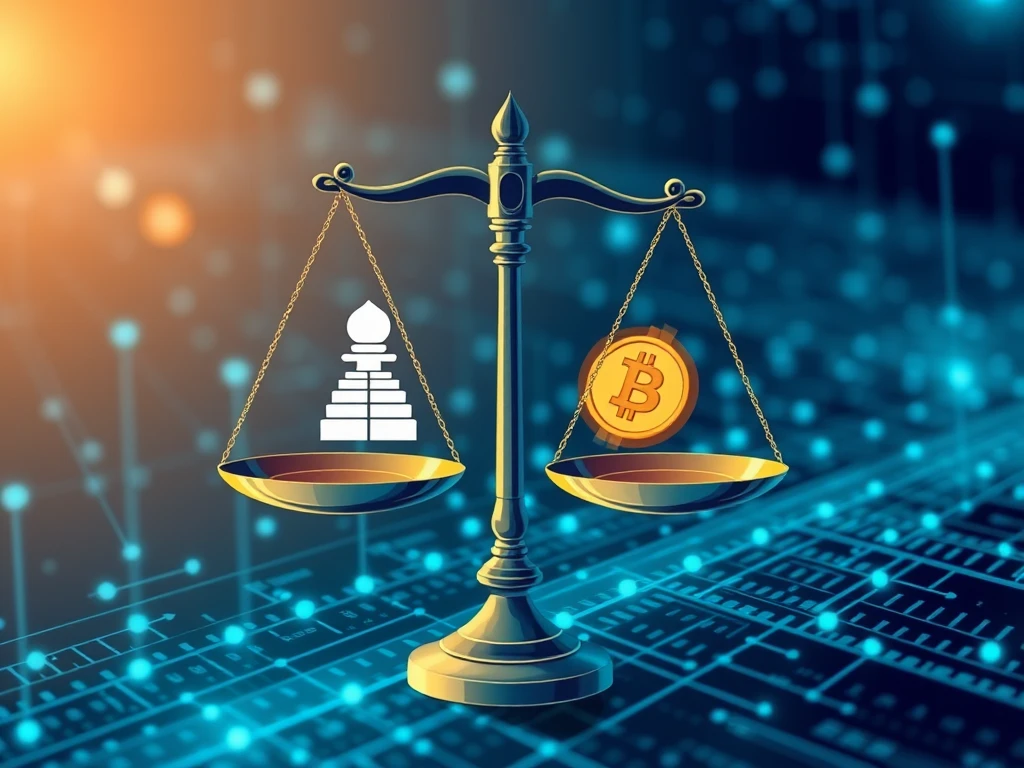Stunning Court Ruling Blocks US Treasury on Tornado Cash Sanctions

The world of cryptocurrency regulation just saw a significant development. A recent court ruling has delivered a major blow to the US Treasury Department’s ability to target privacy-focused services. Specifically, a federal judge has ruled that the Treasury’s Office of Foreign Assets Control (OFAC) cannot restore or reimpose sanctions against the well-known crypto mixer, Tornado Cash. This decision marks a pivotal moment in the ongoing debate about government oversight of decentralized technologies.
Why the Tornado Cash Sanctions Were Challenged
In August 2022, the US Treasury, via OFAC, added Tornado Cash’s smart contract addresses to its Specially Designated Nationals and Blocked Persons (SDN) list. The rationale provided was that the protocol was used to launder funds, including those stolen by the North Korean hacking group, the Lazarus Group. However, users of Tornado Cash, led by Joseph Van Loon, challenged this action in court, arguing that sanctioning a decentralized software protocol was not legally sound.
The legal challenge centered on the argument that sanctioning smart contracts, which are immutable code, differs fundamentally from sanctioning individuals or entities. The plaintiffs contended that OFAC’s action was outside the scope of its legal authority and therefore “not in accordance with law.”
The Court’s Decision: OFAC’s Actions Unlawful
On April 28, an Austin federal court judge, Robert Pitman, issued a judgment stating that OFAC’s Tornado Cash sanctions were indeed unlawful. The judge’s order goes further than simply lifting the sanctions; it permanently enjoins OFAC from enforcing them again. This means the agency is legally barred from putting Tornado Cash back on the SDN blacklist based on the previous rationale.
This ruling follows a complex legal path. Initially, the lower court had sided with the Treasury. However, the Fifth Circuit Court of Appeals reversed that decision and sent the case back, instructing the lower court to rule in favor of the plaintiffs. This led to OFAC dropping Tornado Cash from the sanctions list on March 21, with the agency arguing the case was then “moot.” The latest amended ruling explicitly prevents the sanctions from being restored, addressing OFAC’s mootness argument and solidifying the legal status for Tornado Cash.
What Does This Mean for Crypto Mixers and Developers?
This court ruling has significant implications for the broader cryptocurrency ecosystem:
- Legal Precedent: It sets a precedent challenging the government’s ability to sanction decentralized protocols purely based on their potential misuse by bad actors.
- Regulatory Clarity (Partial): While not a complete green light for all mixers, it provides some clarity on the legal limits of agency action against decentralized software.
- Developer Concerns: The ruling intersects with ongoing legal battles, such as the case against Tornado Cash co-founder Roman Storm.
The DeFi Education Fund recently petitioned the White House regarding Roman Storm’s charges. Storm was arrested in August 2023 and charged with helping launder over $1 billion through the protocol. His trial is scheduled for July. Groups advocating for developers argue that holding software developers criminally liable for how others use their code is a dangerous precedent that could stifle innovation in the United States.
The judge’s decision regarding the Tornado Cash sanctions provides a legal backdrop to these developer liability concerns, suggesting that the government’s approach to decentralized technology is facing significant legal challenges.
Summary: A Win for Software Liberty?
The federal court’s decision declaring the US Treasury‘s actions against Tornado Cash unlawful and permanently blocking future sanctions is a landmark moment. It underscores the challenges regulators face in applying traditional legal frameworks to decentralized technologies and highlights the judiciary’s role in defining the boundaries of government authority in the crypto space. While the legal battle involving individuals associated with Tornado Cash continues, this court ruling offers a significant legal victory for the principle that code itself may not be a sanctionable entity.









